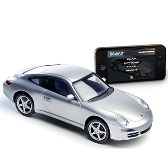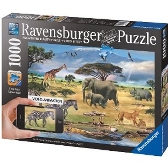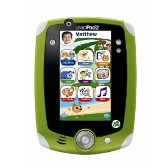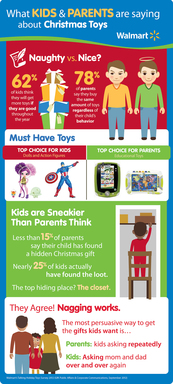We have been testing toys for this holiday season since last February when the new toys were “launched” at Toy Fair. Everywhere we went, the marketing spin was the same. This toy has an APP, this APP sensation now has a real world toy to go with it, the APP is free with the purchase of the toy, the APP makes the toy appealing to a new generation of kids, your child’s smartphone fits in the belly of this toy, you can steer your car with this app….you get the idea.
If you have kids, you know why the toy industry is nervous. Go out to the playground, stand on-line at the grocery store, or look around the restaurant — you’ll see that everyone is plugged into their smartphones or tablets. Everyone. You’ll see a toddler hand off a sippy cup for a chance to hold a smartphone.
In a year with no run away “hot” toy, the digital takeover of toyland feels even closer. So what’s a toy maker to do? Should parents spend more of their child’s play dollars downloading APPS?
Our suggestion- use the technology in ways that are age appropriate and enhance the play experience.  For example, SilverLit’s latest RC Carrera is fun to operate with your smartphone via an APP you download. It’s not only sexy, but it works. The same could be said of Ravensburger’s Augmented Reality Puzzles where after you’ve put together the 1,000 piece puzzle (a great parent/child project), the APP allows you to bring to life different aspects of the puzzle.
For example, SilverLit’s latest RC Carrera is fun to operate with your smartphone via an APP you download. It’s not only sexy, but it works. The same could be said of Ravensburger’s Augmented Reality Puzzles where after you’ve put together the 1,000 piece puzzle (a great parent/child project), the APP allows you to bring to life different aspects of the puzzle.  My favorite is the Safari version – the animals on the puzzle start to run on your device. Our testers also loved the Barbie Fashionista Ultimate Closet— which is really the 21st century version of paper dolls.
My favorite is the Safari version – the animals on the puzzle start to run on your device. Our testers also loved the Barbie Fashionista Ultimate Closet— which is really the 21st century version of paper dolls.
Several APP toys go the other way. For example, you can now buy a boardgame version of Words with Friends. You may of heard of this game before, it’s called Scrabble. And while many Scrabble fans may find this all very silly, it’s likely that the Words with Friends boardgame will become the new Scrabble and your grandchildren will say, Scrabble? — what’s that? It happens. Hasbro is smartly hedging its bets by offering both. There are also Fruit Ninjas and Angry Bird “action figures” (from Mattel) that interact with the APP. The marketing spin on these toys: they enhance the digital experience. Our testers take — “like a happy meal toy” one parent noted- a nice add on, but not essential.
Ultimately we also did not find the APP enhanced version of Monopoly appealing once we got over the “look at that” moment. First, it takes a game (that usually costs under $20) to a whole new level: it now requires an expensive smartphone or tablet at the center of the quintessential American board game. This new dimension, while “very current” also felt very 1%-ish to us. Equally important, the banker is no longer your child. The banking now takes place on the device. For us, that takes away one of the best aspects of the game. We also questioned the specially designed (no scratch bottoms) Hot Wheels cars for the new Hot Wheels APP from Mattel . When I asked what would happen when your 3 year old uses one of their regular (very scratchy) Hot Wheels on the tablet, the answer that there would be a learning curve and parent supervision is important seemed less than satisfying.
There were lots of point and shoot games and APP related monsters battling each other out. The game play and/or the graphics weren’t our thing before and adding an APP did not change our view.
APPs and very young children. Handing off a smartphone or tablet to a young child is usually pretty amazing. They generally stop fussing as they swish their fingers to make things happen. All pretty magical…but not the most important type of play for young children.
This is where our message tends to get unpopular. Screen time is screen time. Whether it’s TV or dvds – it’s not the way very young children learn best. The fact that kids often quiet down doesn’t mean that it’s beneficial to their development. We took the same position against videos for children under two and it wasn’t until very recently that the “educational” value of such viewing has been universally debunked. We’re not suggesting that your toddler never be allowed to have screen time– just know that the time should be limited and it happens at the expense of more valuable play experiences. And just like it’s hard to break away from your own electronic favorite games, this type of play is addictive for kids.
The biggest problem we see is that when babies and toddlers are “plugged in”, no one is talking. Research has shown that very young children learn best from real life experiences. While there hasn’t been enough time to produce research on the APP revolution in the nursery, we are confident that while the technology may have advanced, that the needs of children remain the same. Talking, singing, laughing, exchanging ideas – in the real world is how babies develop language best. And while all those DVDs promised to teach your child five languages – not one multilingual child was ever produced as evidence of such a claim.
APPS and Older Children. APPS can be used with children in ways that are fun, engaging and educational. Richard Davies of ABC Radio pointed out that kids can play games on-line with grandparents in different cities and that some of the art programs employ amazing graphics. Both are true. A well-selected group of APPs whether they’re games, books or art programs are fun for parents to explore with their kids.  LeapPad2 Explorer was a hit with both our kid and parent testers. The parents liked the library of games that could be selected to fit their child’s developmental level.
LeapPad2 Explorer was a hit with both our kid and parent testers. The parents liked the library of games that could be selected to fit their child’s developmental level.
So to answer my question. The toy industry can and must stay relevant. Kids need a rich variety of playthings that engage them and their imaginations. It’s not old fashion to buy puppets, dolls, blocks, art supplies…it’s key to raising the next generation of thinkers, writers, inventors and yes, even some future APP developers.
For a complete list of this year’s outstanding toys, please visit our website at www.toyportfolio.com




